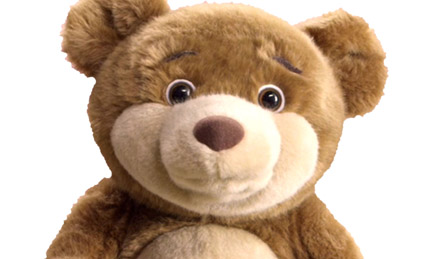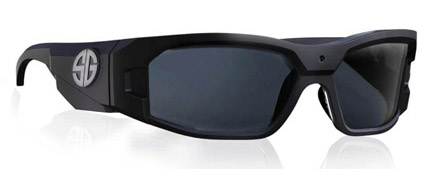Friday, February 28th, 2014
[The following is an article I wrote for the Feb. 27, 2014 issue of KidScreen.]

I’m not a betting guy. But if you asked me to wager that this year’s crop of tech toys would be compelling, playful and desirable, I probably would have bet against you.
Historically, tech and play have not co-existed so well together in the toy world. In the past, numerous tech toy misses resulted in large financial losses as the emphasis was often placed incorrectly on technology at the expense of play. This includes a large cohort of apps created by toy companies over the last two years. But this year was different. At this month’s New York Toy Fair, apps had greater play appeal, any accompanying physical element was better integrated into the play experience, the tech was not forced and focus was appropriately placed on fun.
Common elements of the most successful tech toys often included the use of a digital camera, numerous sensors and in some cases even effective use of augmented reality. Gone are the days of the “watch me” toy, which are animatronic, robotic toys that are just no fun to watch. Also gone are products that relied on confusing second screens. Tech play for tech’s sake has been replaced with the motto “fun first, tech second.”
With that in mind, the following three newcomers have the potential to be serious trailblazers in the year ahead:
WikiBear by Commonwealth Toy (Video link)
This was the talk of the show. One simple way to describe WikiBear is by the nickname it earned at the show, Siri Bear. Imagine a child talking to WikiBear, asking it endless questions. “How far away is the moon?” “Who is the current president of the US?” “Where is the nearest library?” Ask WikiBear a question, any question, and it will provide an answer by scouring the web for a response. Narration from the bear has a friendly conversational tone, not a cold and clinical response. WikiBear relies on speech recognition technologies (a major challenge with children’s voices) and requires a live wireless web connection. It also uses a lot of back-end language and conversation smarts. WikiBear will be available in the fall and a suggested retail price has yet to be confirmed. However, Commonwealth believes it will be somewhere between $59.95 and $69.95. At this price, adults could even use WikiBear as an inexpensive therapist.

Ozobot by Evollve (Video link)
Ozobot is a small roving robot, about the size of a lime. It has a built-in optical reader on its base that not only follows a drawn line path on paper, or on a tablet, but it can also interpret different colored patterns. One set of colored dots can make Ozobot spin, another make it go faster, or slower, or flash its lights. In a sense, there is a tiny bit of programming fun the user can create by drawing each path with different colored dots. Six free single player and multiplayer game apps will be available at launch, which will be in August for a cost of $59.95.

Spy Gear Video Glasses (Video link)
Can’t see past the $1, 500 Google Glass price tag? Spin Master has released its own version called Spy Gear Video Glasses for just under $30. The device will let kids secretly capture up to 20 minutes of video or up to 2, 000 photos. These specs look a lot less geeky than Google Glass, and they are already available in stores.
Other noteworthy tech toys that were the topic of conversation at the show were a number of game-based learning apps by a Silicon Valley startup called Tangible Play. So too were block-like, robotic construction kits called MOSS by Molecular Robotics, whose creations can be controlled through an app. Fun, playful and inexpensive digital dice by eDiceToys caught my eye, as did a compelling fashion designer creativity kit and app called My Virtual Fashion Show by Crayola.
Now that the toy industry is starting to get the upper hand on digital play, you won’t have to wait until next year’s Toy Fair to see advances with tech toys or apps. Unlike Toy Fair in years past, advances with digital play will start to appear more frequently. I predict you will start to see new, innovative, tech toy products and apps announced again as early as next month.
[Scott Traylor is the founder and CEO of Boston-based 360KID, a digital development company specializing in creating interactive products for children as a service.]

